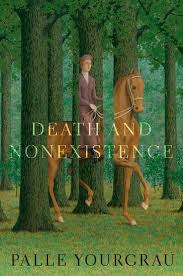Palle Yourgrau at IAI:
 To choose another prominent example, consider what Francis Kamm writes in Morality, Mortality: “Life can sometimes be worse for a person than the alternative of nonexistence, even though nonexistence is not a better state of being.” For Kamm, nonexistence is never a better state of being than is existence because for her, apparently, nonexistence is not a state of being at all.
To choose another prominent example, consider what Francis Kamm writes in Morality, Mortality: “Life can sometimes be worse for a person than the alternative of nonexistence, even though nonexistence is not a better state of being.” For Kamm, nonexistence is never a better state of being than is existence because for her, apparently, nonexistence is not a state of being at all.
Kamm and Kagan, however, are mistaken. What they say is true not of Socrates but of the tooth fairy. The tooth fairy is indeed not in a state of nonexistence for the simple reason that there is no such person as the tooth fairy. By contrast, there is such a person as Socrates. Nathan Salmon, in “What Is Existence?” puts the matter succinctly: “‘Kripke exists’ is true whereas ‘Napoleon exists’ is false. Kripke has existence. Napoleon has nonexistence.”
When you die and cease to exist, you aren’t ‘erased’, you aren’t ‘rubbed out’, nor do you turn into a different kind of being. You forfeit your existence, not your essence. Death affects that you are, not what you are. Thus, assuming, for the sake of argument, that persons are concrete objects and that that is part of their essence, when Socrates died he didn’t cease being concrete. He went from being an existent concrete object to being a nonexistent concrete object.
more here.
